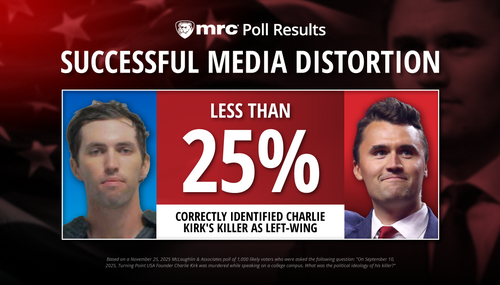 CNN's Fareed Zakaria ripped Donald Trump with an uncensored expletive on Monday's Wolf program over the billionaire's recent remarks about Russia: "Every time it is demonstrated that Donald Trump is plainly ignorant about some basic public policy issue....he comes back with the certain bravado and tries to explain it away with a Tweet....there's a term for this kind of thing. This is the mode of a bullshit artist." Zakaria also likened Trump's stance on Russia's annexation of Crimea to Nazi Germany's invasions prior to World War II: "[It] is the same argument that Adolf Hitler made about the Sudeten Czechoslovaks." [video below]
CNN's Fareed Zakaria ripped Donald Trump with an uncensored expletive on Monday's Wolf program over the billionaire's recent remarks about Russia: "Every time it is demonstrated that Donald Trump is plainly ignorant about some basic public policy issue....he comes back with the certain bravado and tries to explain it away with a Tweet....there's a term for this kind of thing. This is the mode of a bullshit artist." Zakaria also likened Trump's stance on Russia's annexation of Crimea to Nazi Germany's invasions prior to World War II: "[It] is the same argument that Adolf Hitler made about the Sudeten Czechoslovaks." [video below]
Wolf Blitzer turned to his fellow CNN anchor for his take on Trump's appearance on ABC's This Week on Sunday. Blitzer first pointed out that the presidential candidate "Tweeted this clarification...'When I said in an interview that Putin is 'not going into Ukraine, you can mark it down,' I am saying if I am President. Already in Crimea!' He also said that the people of Crimea would rather be with Russia anyway." He asked, "What message does it send when the presidential nominee of a party needs to...clarify his remarks on such a sensitive and volatile issue?"
Zakaria immediately responded with his "plainly ignorant" phrase about Trump, and cited the billionaire's remarks on Brexit, the nuclear triad, and how "he thought that Tim Kaine was the governor of New Jersey." He continued with his vulgar "bullshit artist" label of the presidential nominee.
Blitzer followed up by wondering if there's "evidence to suggest he's right when he says most of the people who live in Crimea, which has been annexed by Russia, really would prefer to be part of Russia than part of Ukraine." The liberal CNN host acknowledged that "there is evidence for that, but that has never been the way in which we changed borders since the end of World War II." He then dropped his Hitler comparison:
FAREED ZAKARIA: It is important to understand that the argument that Donald Trump is putting forward about Crimea is the same argument that Adolf Hitler made about the Sudeten Czechoslovaks. It is, in many ways...the argument that was made about the Austrians — that, look, these people want to be part of Germany, so I'm just going to go and invade the country anyway. You don't change borders without some process that is — you know, legal; that is democratic; that does not involve force.
The fact that...maybe that if you had done a poll in Crimea, more people...would have liked to be part of Russia, rather than Ukraine, does not tell us much. The Sudeten Germans in Czechoslovakia probably wanted to be part of Germany. That did not justify Adolf Hitler's move.
The full transcript of the Fareed Zakaria segment from CNN's Wolf program on August 1, 2016:
WOLF BLITZER: While Donald Trump's open battle with the parents of a fallen American soldier has captured headlines, there are more comments that bear some scrutiny — like this one about Russia and Ukraine.
[CNN Graphic: "Race For The White House: Trump Clarifies Comments On Russia"]
DONALD TRUMP, (R), PRESIDENTIAL CANDIDATE (from interview on ABC's "This Week"): He's not gong into Ukraine — okay? Just so you understand: he's not going into Ukraine — all right? You can mark it down. You can put it down. You can take it anyway you want—
GEORGE STEPHANOPOULOS: Well, he's already there, isn't he?
TRUMP: Okay. Well, he's there in a certain way. But I'm not there yet — you have Obama there. And frankly, that whole part of the world is a mess under Obama.
BLITZER: Joining us now from New York is Fareed Zakaria. He's the host of CNN's Fareed Zakaria GPS. Fareed, Donald Trump Tweeted this clarification. I'll — let me put it up there: 'When I said in an interview that Putin is 'not going into Ukraine, you can mark it down,' I am saying if I am President. Already in Crimea!' He also said that the people of Crimea would rather be with Russia anyway. So what message does it send when the presidential nominee of a party needs to come back — clarify his remarks on such a sensitive and volatile issue?
FAREED ZAKARIA: Well, there's a — there's a pattern here, Wolf. Every time it is demonstrated that Donald Trump is plainly ignorant about some basic public policy issue — some well known fact — he comes back with the certain bravado and tries to explain it away with a Tweet or a statement. He did it on Brexit. He did it on the nuclear triad. He did it, really, on how U.S. debt markets work. He thought that Tim Kaine was the governor of New Jersey — and now, with this. And it's — it's sort of amusing to watch how — how is he going to pull it off this time? What is he going to — you know, argue? Usually, it's — he adds that the press hates him.
But there is a — there's a term for this kind of thing. This is the mode of a bullshit artist. And it's — you know, it's sometimes amusing; it's entertaining — if the guy is trying to sell you a condo or a car — but for a president of the United States, it's deeply worrying.
BLITZER: Is there evidence to suggest he's right when he says most of the people who live in Crimea, which has been annexed by Russia, really would prefer to be part of Russia than part of Ukraine?
[CNN Graphic: "Trump Blames Obama For Ukraine Crisis"]
ZAKARIA: There is evidence for that, but that has never been the way in which we changed borders since the end of World War II.
It is important to understand that the argument that Donald Trump is putting forward about Crimea is the same argument that Adolf Hitler made about the Sudeten Czechoslovaks. It is, in many ways, argued — the argument that was made about the Austrians — that, look, these people want to be part of Germany, so I'm just going to go and invade the country anyway. You don't change borders without some process that is — you know, legal; that is democratic; that does not involve force.
The fact that maybe — we don't — we're not sure — maybe that if you had done a poll in Crimea, more people would have been — would have liked to be part of Russia, rather than — rather than Ukraine, does not tell us much. The Sudeten Germans in — in Czechoslovakia probably wanted to be part of Germany. That did not justify Adolf Hitler's move.
BLITZER: Is he right about NATO, when he says that most of the 28 NATO allies don't pay — pay up their response — their responsibility — they don't meet the financial obligations of — of being a NATO ally?
ZAKARIA: Well, he's right. They don't pay enough. They should pay more. It is not an obligation that is written into the charter of NATO. It is an agreed-upon NATO policy that they should spend two percent of — of their GDP on — on defense.
But this is crucial: NATO is an automatic treaty in which an attack on one is an attack on all. That automatic guarantee is what has kept the peace in Europe since 1945, in a — in a land where for 400 years before — you had had wars and devastation — you have had peace, because the United States has said, automatically — no matter what — we will come to your defense. That is — that is what (sic) deterrence works. To change that, and to say — well, if you get invaded, I'm going to take a look at the books and decide how much — you know, you spent on defense last year; and on the basis of that — maybe, I will; maybe, I won't — is a very different kind of foreign policy.
BLITZER: Fareed, thanks very much for joining us.





